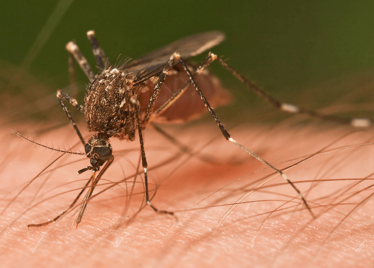Biting Back Against Malaria
Are we close to a vaccine against the mosquito-borne killer?

Almost half the planet is at risk of contracting malaria (1), and although prevention methods have helped quell the number of people who have contracted it from previous years, our battle with the deadly disease seems to be one-sided. Now, research documenting the successful clinical test of a potential malaria vaccine indicates a chance to turn the tables.
The research team, based at the Center for Infectious Disease Research in Seattle and the University of Washington, created an attenuated vaccine of Plasmodium falciparum (Pf GAP3KO) – the most common cause of malaria – through precise genetic deletion of three genes expressed in the pre-erythrocytic stage. The objective was to create sporozoites that were virulent enough to induce an immune reaction but innocuous enough to cause no adverse effects. During the trial, the Pf GAP3KO strain was introduced, via mosquitoes, into 10 human volunteers who endured 150-200 bites each to ensure infection. Despite the mosquitoes’ best efforts, all volunteers subsequently tested negative for blood-stage malaria, and developed antibodies against P falciparum, which could confer immunity against infection by the wild-type.
Extensive work and larger scale trials will be needed to investigate the full potential of Pf GAP3KO, but these preliminary results represent new hope for a successful malaria vaccine.
- WHO, “10 facts on malaria”, (2016). Available at: bit.ly/1pW9WZh. Accessed January 11, 2017.
- JG Kublin et al., “Complete attenuation of genetically engineered Plasmodium falciparum sporozoites in human subjects”, Sci Transl Med, 9, eaad9099 (2017). PMID: 28053159.
My fascination with science, gaming, and writing led to my studying biology at university, while simultaneously working as an online games journalist. After university, I travelled across Europe, working on a novel and developing a game, before finding my way to Texere. As Associate Editor, I’m evolving my loves of science and writing, while continuing to pursue my passion for gaming and creative writing in a personal capacity.















